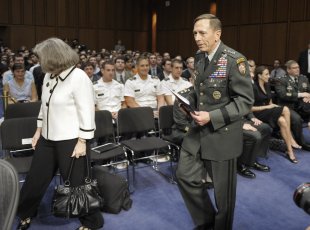NEW YORK (Reuters Health) – Terminally-ill cancer patients are less likely to get aggressive end-of-life treatment, such as chemotherapy in the last two weeks of life, when they talk with their doctors early on about how they want to die, according to a new study.
Treatment aimed at keeping those patients alive at the end is often expensive and may not improve patients’ quality of life or comfort. Such therapies usually involve more time in the hospital rather than at home or in hospice care.
“Aggressive care at the end of life for individual patients isn’t necessarily bad, it’s just that most patients who recognize they’re dying don’t want to receive that kind of care,” said Dr. Jennifer Mack, the study’s lead author from the Dana-Farber Cancer Institute in Boston.
“We should at least consider having these discussions soon after diagnosis if we know that a patient has incurable cancer,” she told Reuters Health.
Her team’s analysis involved 1,231 people with advanced lung or colon cancer who died over a 14-month period during a larger cancer study. Researchers interviewed patients or their caregivers about whether and when the patients had discussions with their doctors about end-of-life care.
Mack and her colleagues also checked medical records for signs of those discussions and for any treatment and hospitalizations cancer patients had in their last month of life.
They found that most patients – 88 percent – had end-of-life discussions, but more than one-third of those took place less than a month before the patient died, when their health was likely already deteriorating. Close to two-thirds of the talks happened while patients were in the hospital.
Almost half of study participants received aggressive, life-prolonging care, Mack’s team reported Monday in the Journal of Clinical Oncology.
Those who’d had end-of-life discussions more than a month before dying were 50 to 60 percent less likely to get that extra treatment than patients who put off those talks or didn’t have them at all.
Patients (and their caregivers) who reported having the discussions with doctors were almost seven times more likely to end up in hospice than those who didn’t recall end-of-life talks.
“A lot of patients don’t want (aggressive treatment), but they don’t recognize that they’re dying or that this is relevant for them,” said Dr. Camilla Zimmermann, head of the palliative care program at University Health Network in Toronto.
But, she told Reuters Health, “The earlier you discuss these things, the more options you have. If you wait too long, you end up having these discussions with someone you don’t know, that you just met, in an inpatient setting,” instead of with your primary doctor.
Mack agreed.
“If we start these conversations early, then patients have some time to process this information, to think about what’s important to them (and) to talk with their families about that,” she said.
Aggressive end-of-life care is also expensive. According to data from the Dartmouth Atlas of Health Care, 32 percent of total Medicare spending goes to caring for very sick patients in their last two years of life, often because those people are in and out of the hospital. In the early 2000′s, that spending was equal to about $ 46,000 per chronically-ill patient.
Zimmermann, who wasn’t involved in the new research, believes it’s never too early for doctors, patients or caregivers to initiate discussions about end-of-life preferences – even if it can be an uncomfortable topic.
“There are many opportunities while that incurable illness is still being treated… to also focus on what happens if this doesn’t work,” she said.
“I think people are afraid that bringing up these discussions is going to make them die. Bringing up these discussions is really going protect them from an outcome they don’t want in the end.”
SOURCE: http://bit.ly/gPtMdm Journal of Clinical Oncology, online November 12, 2012.
Seniors/Aging News Headlines – Yahoo! News











